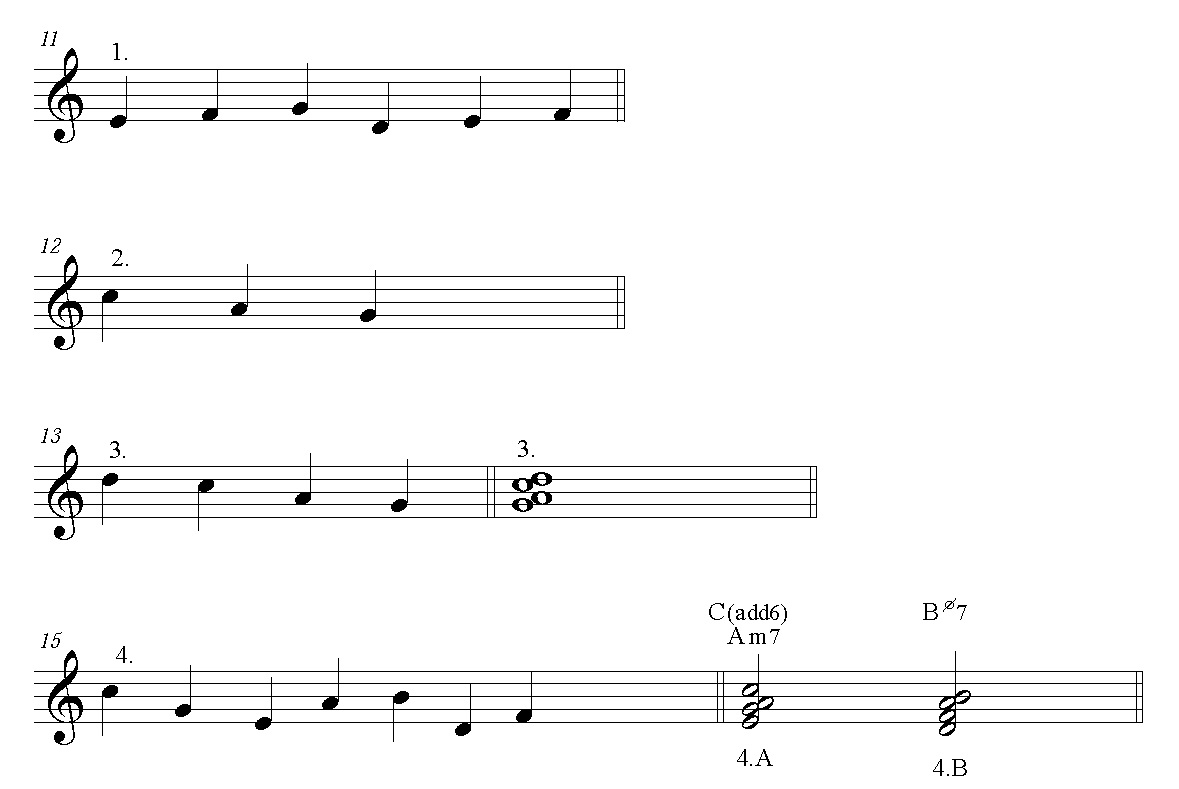Christmas Fantasy Overture (for full orchestra)
This work was originally conceived based on the simultaneous use of two themes: 1) Joy to the World (in C Major), and 2) God Rest Ye Merry Gentlemen (in D Minor).
I was waking from sleep one morning imagining the two melodies happening simultaneously in these two key areas. At that time my main objective was to capture the thought by writing it down. I hadn't yet discovered why the melodies worked well together, or why I had imagined them in two separate tonal centers.
I then began the process of extracting fragments from each theme- melodic, harmonic and rhythmic.
Following is what I obtained from ‘Joy to the World’:
I then began building cluster harmonies based on the melodic fragments.
I created a cyclical ‘chord progression’ based on the melodic fragments of quartal harmonies to be used in an accompaniment ‘rhythm section’ punctuation of the melody.
I then began extracting patterns from ‘God Rest Ye Merry Gentlemen’, as follows:
I noticed that quartal harmony was evident in this melody as well as ‘Joy to the World’.
The following rhythmic pattern became useful in building energetic syncopated passages.
I then discovered the reason both of these melodies worked so well together in their different tonal centers, and it surprised me. My ‘ear’ had imagined it, but until now I didn’t really know why it worked, but here is the reason: the basic construct of the ‘Joy to the World’ melody is C,A,G (in the key of C) and the basic construct of the melody ‘God Rest Ye Merry Gentlemen’ is D,F,G (in the key of D Minor). Both condensed melodic fragments, amazingly, are inversions of one another.
I began using this pattern with harmonies derived from the thematic fragments of both melodies.
There are scaler differences between the two melodies and their corresponding traditional harmonic treatment. Taking these differences creates a chromatic theme.
I finally created a ‘combined’ new melody using intervallic fragments of both melodies.
Throughout the work I tried to contrast the two melodies, almost in disagreement with one another, finally merging them into a ‘unified’ theme. Also the difference between the tonal center of C versus D is resolved at the end, as the ‘Joy to the World’ theme ultimately jumps up to unite with its D rival, causing the main tonal center of the work to shift from C to D, which also is motivically derived from both melodic themes.
The UTPB Philharmonic Orchestra, under the direction of Thomas Hohstadt (my father), worked diligently to prepare the work, but the concert was cancelled due to an ice storm. Fortunately, we were able to obtain a good recording from the practices. I greatly appreciate everyone's hard work!


















